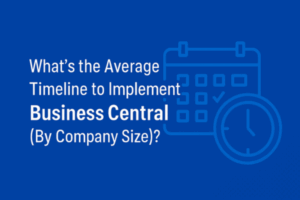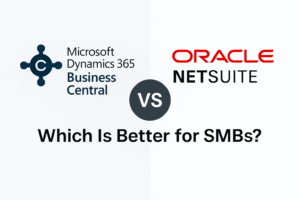Forecasting & Demand Planning
Imagine you run a bike parts distribution company. It’s spring, and orders are pouring in. The last thing you want is to run out of stock on popular items or overstock products that aren’t moving. That’s where forecasting and demand planning come in.
A good ERP system uses past sales data and trends to predict what you’ll need and when. For example, if handlebars always sell like hotcakes in March, your ERP will help you prep for that spike. Alchemy 365’s distribution ERP has tools that make forecasting simple, so you can keep your inventory balanced and your customers happy.
Warehouse Management
Your warehouse is the heart of your distribution operation. If it’s not running efficiently, everything suffers. A strong ERP will include warehouse management tools to help you track inventory, streamline picking and packing, and reduce errors.
Picture this: You’ve got a customer waiting for a rush order, but the item’s location is a mystery. With warehouse management features, your ERP can tell you exactly where it’s stored, down to the shelf. No more scavenger hunts—just quick, accurate order fulfillment.
Sales Order Management
Keeping track of orders manually is a headache waiting to happen. That’s why sales order management is a must-have. It lets you process orders faster, track their status, and ensure nothing slips through the cracks.
For instance, say a long-time customer places an order for cleaning supplies. With sales order management, your ERP can flag any back-ordered items and suggest substitutions—all while keeping the customer’s preferences in mind. Alchemy 365’s system does this seamlessly, so you can keep your clients coming back for more.
Electronic Data Interchange (EDI) and Retailer Compliance
If you’re working with big retailers, you already know they have strict requirements for how orders and invoices are handled. This is where EDI comes into play. It allows you to electronically exchange documents like purchase orders and invoices with your partners.
Think of it like texting, but for businesses. Instead of spending hours entering data manually, your ERP handles the back-and-forth automatically. Plus, it helps you stay compliant with retailer rules, so you don’t risk fines or lost partnerships. With Alchemy 365, we’ve got this feature baked in, keeping your operations headache-free.
Business Intelligence (BI)
Running a business without BI tools is like flying blind. You need insights to make smart decisions, and that’s exactly what BI delivers. A solid ERP will provide dashboards and reports that help you see what’s working and what’s not.
For example, let’s say your shipping costs are creeping up. BI tools can pinpoint why—maybe it’s a surge in expedited deliveries or a dip in bulk orders. Once you know the issue, you can take action to fix it. BI features in Alchemy 365 are designed to give you this kind of clarity.
Supply Chain Management
Your supply chain is the backbone of your distribution business. An ERP with supply chain management tools helps you track every link in that chain, from sourcing to delivery.
Imagine a supplier delays a shipment of auto parts. Without the right tools, this could throw your entire operation into chaos. But with an ERP, you get real-time updates and can adjust your plans accordingly. Alchemy 365’s ERP keeps everything connected, so you’re never caught off guard.
The Bottom Line
Choosing the right ERP for your distribution business isn’t just about ticking boxes—it’s about finding a system that helps you work smarter. Features like forecasting, warehouse management, sales order tools, EDI, business intelligence, and supply chain management aren’t just nice to have—they’re essential.
At Alchemy 365, we know what it takes to run a successful distribution operation. While this post isn’t a sales pitch, we’re here if you’re looking for a system that ticks all these boxes and more. Whatever ERP you choose, make sure it’s one that truly supports your business’s growth.
So, what’s your next move? If you’re ready to simplify your operations and scale your business, an ERP with these features might just be the game-changer you need.


















